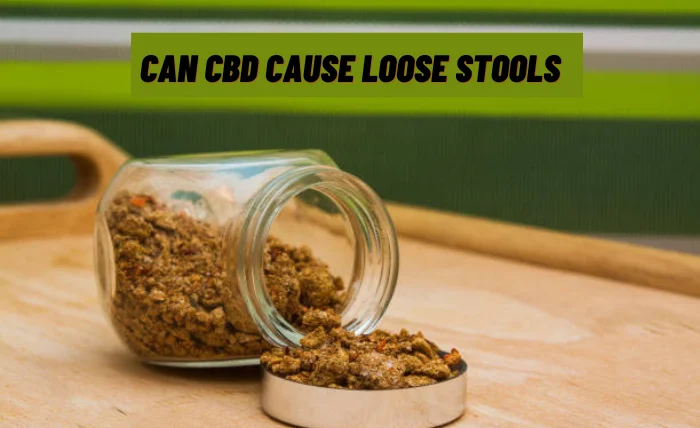In the world of wellness and alternative therapies, CBD has emerged as a superstar. Touted for its myriad health benefits, from easing anxiety to reducing pain, CBD seems like the go-to for a healthier life. But, amidst its growing popularity, there’s a question that often gets whispered in the corners of forums and health blogs: Can CBD give you diarrhea? It’s a straightforward concern, yet it’s packed with complexity.
This article dives into the heart of this question, shedding light on what you really need to know about CBD and its effects on your digestive system. Get ready for a clear, fluff-free exploration that promises to keep you informed and ready to navigate the world of CBD with confidence.
What is CBD? Can Cbd Give You Diarrhea

Exploring CBD often brings up questions about its effects, including concerns like, Can CBD give you diarrhea? Before we tackle this, let’s first understand CBD better. We’ll look into what CBD is, how we get it, and the types of CBD products you might encounter. This guide aims to inform and clarify, making your journey into CBD as smooth as possible.
CBD, or cannabidiol, is a compound found in cannabis plants. Unlike THC, another compound from the same plants, CBD does not cause a high. Its popularity stems from its potential health benefits. People extract CBD mainly from hemp plants because they have high CBD and low THC levels.
Extraction and Sources
The extraction of CBD from hemp involves several methods, but CO2 extraction is common. This method helps ensure the purity and safety of CBD, removing unwanted substances. Hemp plants are the primary source for CBD products, chosen for their rich CBD content and minimal THC.
Types of CBD Products
Oils
CBD oil is a straightforward and fast-acting option. You can take it under your tongue for quick absorption. Many use it to help with anxiety and pain relief. Its popularity lies in its ease of use and fast effects.
Edibles
CBD edibles include foods like gummies and chocolates. They offer a tasty and easy way to consume CBD. While it takes longer for their effects to kick in, they tend to last longer. Edibles are a favorite for their convenience and variety.
Topicals
Topicals are CBD-infused creams and lotions applied to the skin. They are used for localized pain relief or to address skin conditions. This category is popular for those looking for targeted effects without systemic impacts.
Capsules
For those seeking precision and discretion, CBD capsules are ideal. They provide a measured dose of CBD, making it easy to monitor intake. Capsules appeal to those who prefer a straightforward, no-fuss approach to CBD consumption.
The Digestive System and CBD
In the world of CBD, many wonder about its impact on digestion. “Can CBD give you diarrhoea? is a common question. To answer, we must first understand our digestive system, how CBD interacts with it, and the role of the endocannabinoid system (ECS) in gut health. This article breaks down these complex topics into easy-to-understand parts, aiming for clarity and insight.
Overview of How the Digestive System Works
The digestive system breaks down food into nutrients the body can use. It starts in the mouth, moves to the stomach, and then to the intestines. Along the way, various organs contribute to digestion. The process is essential for energy, growth, and repair.
How CBD Interacts with the Digestive System
CBD can affect the digestive system in several ways. It interacts with the body’s ECS, which plays a part in regulating appetite, nausea, and bowel movements. CBD might influence these functions, potentially aiding in digestive health or causing mild side effects like diarrhea in some.
The Endocannabinoid System (ECS) and Its Role in Gut Health
The ECS is a network of receptors found throughout the body, including the digestive tract. It helps regulate many functions, including digestion. The ECS ensures our gut works smoothly, balancing processes like inflammation and bowel movements. CBD’s interaction with the ECS can support gut health, but it’s important to find the right balance.
Can CBD Give You Diarrhea? The Evidence
When exploring the effects of CBD, one question often arises: Can CBD give you diarrhea? This concern is valid, given CBD’s interaction with the digestive system. Here, we delve into the evidence, including research and personal experiences, to offer a well-rounded perspective on CBD and its potential digestive impacts.
Exploration of Research and Studies
Studies on CBD’s effects on the digestive system are ongoing. Research suggests that CBD can influence gut health through its interaction with the endocannabinoid system. While some studies indicate potential benefits, including anti-inflammatory effects on the gut, others hint at possible side effects like diarrhea, especially at high doses. The evidence points to a dose-dependent relationship between CBD and digestive health.
Personal Anecdotes and Reports
Beyond scientific studies, personal stories offer insight into CBD’s effects. Some individuals report improvements in digestive health and relief from conditions like IBS. However, others have experienced diarrhea as a side effect. These personal accounts highlight the variability in how people respond to CBD. It’s important to consider such experiences, as they offer real-world insights into CBD’s potential digestive effects.
Potential Reasons for Digestive Issues with CBD
Exploring CBD’s benefits also means looking at its side effects, like diarrhea. Why does this happen? We focus on potential reasons, such as dosage, carrier oils, and contaminants. Understanding these factors can help you use CBD more safely.
Dosage Considerations and the Potential for Overuse
The amount of CBD you take matters. High doses may upset your stomach and lead to diarrhea. Everyone’s tolerance varies. Starting with a low dose and slowly increasing it can help you find the right amount without causing digestive problems. Listen to your body and adjust as needed.
The Role of Carrier Oils in CBD Products
CBD products often contain carrier oils like coconut or olive oil. These oils help your body absorb CBD but can also affect digestion. For example, some people find coconut oil causes loose stools or discomfort. If you notice digestive issues, check the carrier oil in your CBD product. Trying a different one might solve the problem.
Possible Contaminants or Additives in CBD Products
Not all CBD products are created equal. Some may contain contaminants or additives that upset the stomach. These unwanted ingredients can come from poor manufacturing processes. Always choose CBD products from reputable sources. Look for those that have third-party testing. This ensures they are free from harmful substances.
How to Use CBD Safely to Minimize Digestive Distress
The use of CBD while avoiding digestive issues requires a careful approach. Here, we explore strategies to use CBD safely, focusing on dosage, product quality, and body awareness. These guidelines aim to enhance your CBD experience without the discomfort of digestive distress.
Starting with Low Doses and Gradually Increasing
Begin your CBD journey with small amounts. A low dose reduces the risk of digestive upset. Gradually increase the dose over time. This method helps you find the right amount that offers benefits without negative side effects. It’s like testing the waters before diving in.
Selecting High-Quality, Third-Party Tested CBD Products
The quality of CBD products matters. High-quality, third-party tested options ensure safety and purity. These products have gone through rigorous testing for contaminants that could cause diarrhea. Always check for third-party testing results before buying. This step is crucial for avoiding harmful additives.
Monitoring Your Body’s Response to CBD and Adjusting Accordingly
Pay close attention to how your body reacts to CBD. If you notice digestive issues, consider adjusting your dose. You might need to lower it or try a different product. Everyone’s body responds differently to CBD. Being mindful of your body’s signals helps you adjust for the best personal experience.
FAQs
Can CBD Oil Cause Digestive Problems?
CBD oil can cause digestive issues for some people, including diarrhea or upset stomach. These effects are typically related to dosage, the quality of the product, or sensitivity to CBD’s compounds. Starting with a low dose and gradually increasing it can help minimize these potential side effects.
How Does CBD Affect Bowel Movements?
CBD may influence bowel movements due to its interaction with the endocannabinoid system, which plays a role in gut health. For some, CBD can alleviate symptoms of gastrointestinal disorders, leading to more regular bowel movements. However, others might experience changes like diarrhea or softer stools.
Is CBD Safe for People with Sensitive Stomachs?
CBD is generally safe for people with sensitive stomachs when used in moderation and if high-quality, third-party tested products are chosen. It’s important to start with a low dose to see how your body reacts. Consulting with a healthcare professional is also advisable for personalized advice.
Bottom Line
Can CBD give you diarrhea requires a nuanced approach. While CBD offers many health benefits, its interaction with the digestive system and potential side effects, such as diarrhea, cannot be ignored. By understanding dosage, product quality, and individual reactions, users can mitigate these risks. Careful use, coupled with informed choices, makes CBD a valuable addition to wellness routines while minimizing digestive distress.






